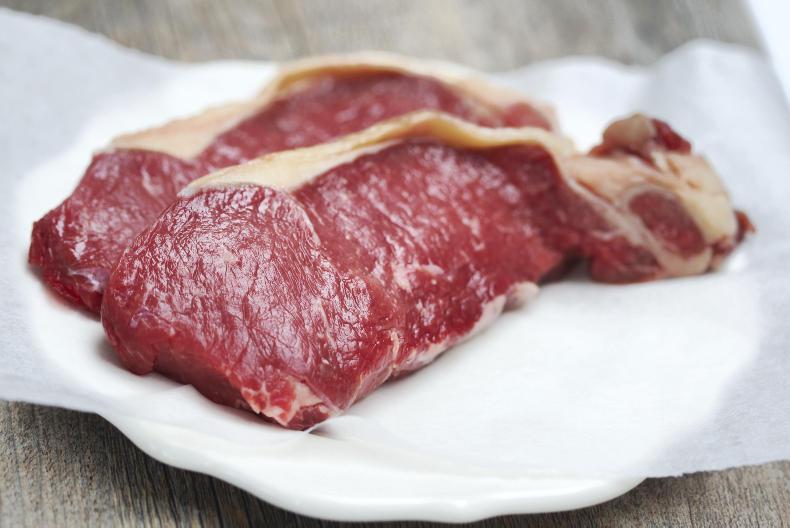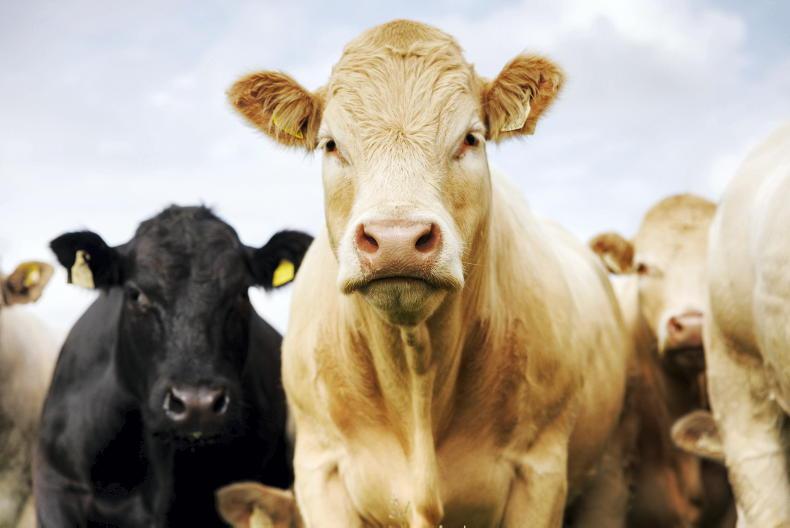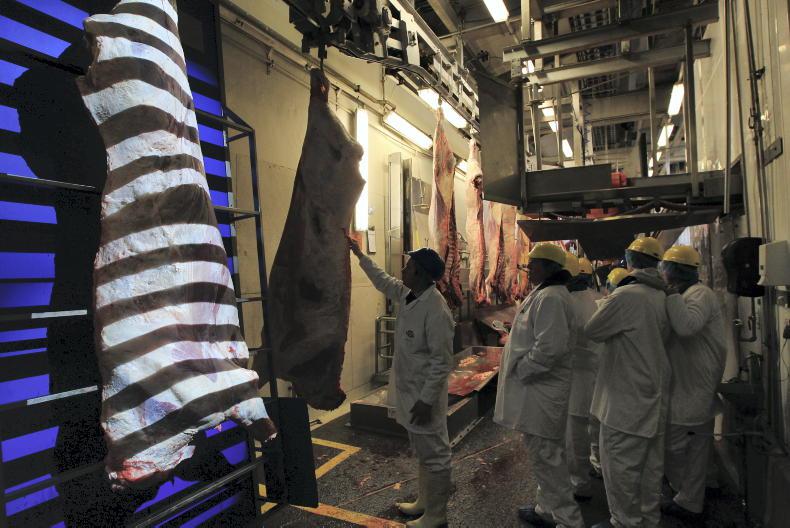A steady level of meat consumption in the UK will not contribute to global warming, a key adviser to the UK government has acknowledged.
Speaking to Country and Land Association (CLA) members, Henry Dimbley said government policy should recognise that methane emissions from cattle break down in the atmosphere after 10 to 12 years.
“The methane that cows are producing in a herd replaces the methane that cows produced 12 years before, so it’s not the same as a power station emitting carbon dioxide that is there forever,” he said.
Dimbley, who is currently developing a National Food Strategy for Defra, suggested a new approach should be taken to calculating the Global Warming Potential (GWP) of different greenhouse gases.
He gave the example of an accounting system developed by researchers at the University of Oxford, known as GWP*, which recognises the short atmospheric lifespan of methane.
“What that means is if we ate the same amount of meat now [as we did 20 years ago], we would not increase global warming,” Dimbleby said.
However, the upcoming National Food Strategy is still likely to recommend that meat consumption in the UK reduces, although this is for dietary reasons and targeted at people who currently eat excessively.
“If you could tackle that, most of us could carry on enjoying meat,” Dimbleby said.
He described the debate surrounding meat consumption and climate change as “often quite unpleasant” and added the National Food Strategy aims to “help take the sting out of it”.
He is also against a policy that enhances the environment, while increasing the reliance on imports.
Read more
UK farming causes global cooling, claims scientist
Cattle emissions wildly overstated
A steady level of meat consumption in the UK will not contribute to global warming, a key adviser to the UK government has acknowledged.
Speaking to Country and Land Association (CLA) members, Henry Dimbley said government policy should recognise that methane emissions from cattle break down in the atmosphere after 10 to 12 years.
“The methane that cows are producing in a herd replaces the methane that cows produced 12 years before, so it’s not the same as a power station emitting carbon dioxide that is there forever,” he said.
Dimbley, who is currently developing a National Food Strategy for Defra, suggested a new approach should be taken to calculating the Global Warming Potential (GWP) of different greenhouse gases.
He gave the example of an accounting system developed by researchers at the University of Oxford, known as GWP*, which recognises the short atmospheric lifespan of methane.
“What that means is if we ate the same amount of meat now [as we did 20 years ago], we would not increase global warming,” Dimbleby said.
However, the upcoming National Food Strategy is still likely to recommend that meat consumption in the UK reduces, although this is for dietary reasons and targeted at people who currently eat excessively.
“If you could tackle that, most of us could carry on enjoying meat,” Dimbleby said.
He described the debate surrounding meat consumption and climate change as “often quite unpleasant” and added the National Food Strategy aims to “help take the sting out of it”.
He is also against a policy that enhances the environment, while increasing the reliance on imports.
Read more
UK farming causes global cooling, claims scientist
Cattle emissions wildly overstated









SHARING OPTIONS